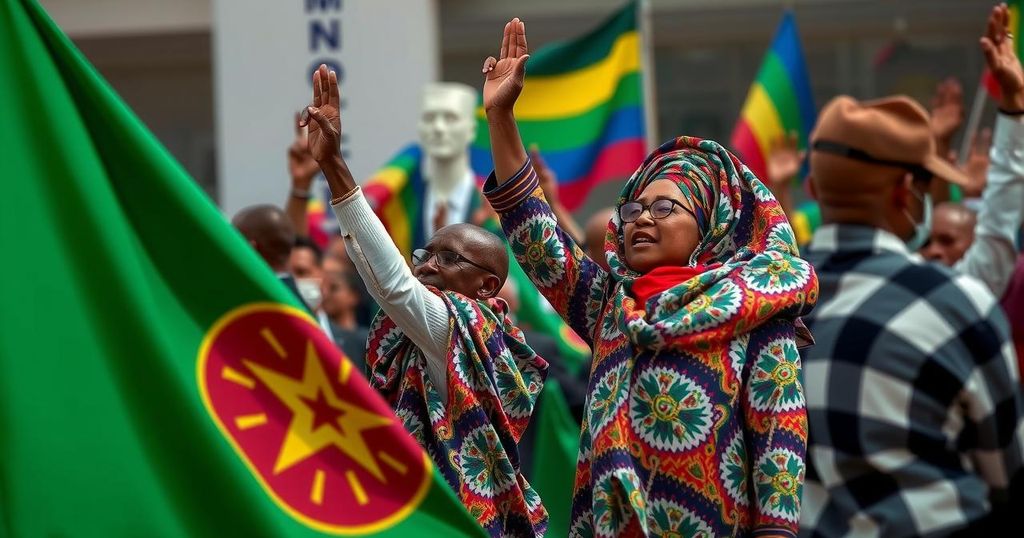Ethiopia Acknowledges Somaliland’s Democratic Election Amid Regional Tensions

Ethiopia has recognized the recent presidential elections in Somaliland, praising the conduct as peaceful and democratic. The Somaliland National Electoral Commission was commended for ensuring fair processes, and the elections attracted international observers. Despite these advancements, tensions concerning an agreement with Ethiopia regarding Somaliland’s status and maritime access continue, provoking reactions from Somalia.
Ethiopia has officially recognized the recent presidential election held in Somaliland, a region that has sought international legitimacy following its unilateral declaration of independence thirty years ago. A statement from the Ethiopian Ministry of Foreign Affairs commended the citizens of Somaliland for their commitment to conducting a “peaceful and democratic election.” Somaliland operates a self-governing administration distinct from Mogadishu, managing its own legislative processes. The Ethiopian government praised the Somaliland National Electoral Commission for its role in ensuring that the elections were “free and fair.” As the first nation to acknowledge Somaliland’s electoral process, Ethiopia noted that the elections garnered attention from international observers, who reinforced the significance of this democratic exercise. The Ministry stated, “This process reflects the maturity of Somaliland’s governance and democratic system.” International partners, who observed the electoral proceedings on November 13, reaffirmed the NEC’s efficacy in providing a transparent registration and nomination process for candidates. The incumbent president, Muse Bihi Abdi of the Kulmiye party, faced opponents Abdirahman Irro of the Waddani party and Faisal Ali Warabe of UCID, with the election results yet to be announced. The Commission has alerted the electorate to be vigilant against disinformation regarding the election process. Following the electoral events, Somaliland faces continued tensions surrounding a proposed Memorandum of Understanding with Ethiopia. This agreement has been criticized as “illegal and provocative” by Somalia, raising concerns of potential annexation as it facilitates Ethiopian access to maritime resources for military and port development. As Somalia reacts with allegations of Ethiopian expansionism, it has further engaged in a defensive alliance with Egypt, signaling a strategic approach to counter regional pressures. This election, along with Ethiopia’s recognition, may significantly influence Somaliland’s aspirations for self-determination and international acknowledgment while highlighting the complex relationship between Somaliland, Somalia, and Ethiopia.
In 1991, Somaliland declared independence from Somalia following years of civil conflict, aspiring to establish itself as a sovereign state. However, its claim for international recognition remains unfulfilled, leading to a unique governance structure that operates independently from the rest of Somalia. Despite holding regular elections and functioning democratic institutions, Somaliland’s status continues to be a point of contention within the Horn of Africa. The recent elections demonstrated Somaliland’s political maturity and commitment to democratic processes, while Ethiopia’s involvement indicates growing regional influence and alliances, particularly in the face of international diplomatic challenges.
Ethiopia’s recognition of Somaliland’s peaceful election underscores the region’s delicate political dynamics and the complexities surrounding governance and sovereignty in the Horn of Africa. While the electoral process has drawn commendation from international observers, underlying tensions related to territorial claims and geopolitical agreements persist. The outcome of the election and the reactions from Somalia will likely influence the future trajectory of Somaliland’s quest for recognition and stability in the region.
Original Source: www.garoweonline.com







